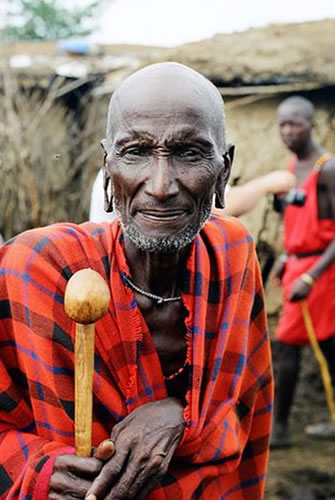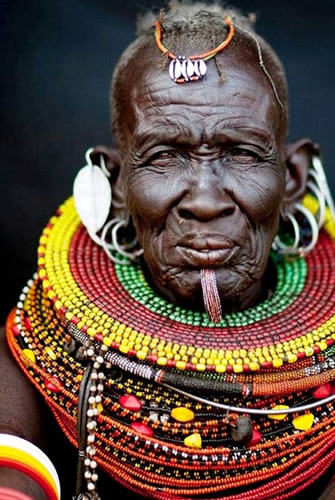Dec. 2002 Proverb: ” From the word of an elder is derived a bone.” – Rwanda (Rwanda) and Rundi (Burundi)

- Ijambo ry-umukuru ritorwamo igufwa. (Rwanda and Rundi)
- De la parole d’un vieux on tire un os. (French)
- Ndani ya neno la mzee hupatikana mfupa. (Swahili)
- From the word of an elder is derived a bone. (English)
Rwanda (Rwanda) and Rundi (Burundi) Proverb
Background, Explanation, Meaning and Everyday Use
Prior to the colonial divide-and-rule incursions that were to create or exaggerate their racial differences that have resulted in hundreds of thousands of deaths and migrations, there lived in and around present-day Rwanda and Burundi two major classes of people. The Tutsi (Batutsi, pl.) who controlled most of the cattle economy were traditionally recognized as superior to the Hutu (Bahutu, pl.) who primarily tilled the land and relied on food and cash crops. But the two groups basically lived together, married each other, are of the same culture and use the same names and language. The system was fluid such that a Hutu (Muhutu, sing.) who became rich and acquired cattle could climb up into the Tutsi hierarchy; while a Tutsi (Mututsi, sing.) who became dispossessed of, or lost, his cattle could drop down into the Hutu category.
Africans are traditionally renowned for their admiration, respect and reverence for their elders. The term “elder” is known to have a variety of connotations including the common one of a person who is in a higher age hierarchy. “Elder” can also mean one who is in a position of higher authority or responsibility or one who has masterful expertise in a field. Hence many would immediately perceive God, Jesus, many biblical figures and instructors, ancestors and parents, renowned experts and so forth as good examples of elders. An elder represents accumulated experience and practice such that those lower down in the age hierarchy would look to one as a person who does for them a lot of paving the way, teaching, and guiding. This proverb is a renowned one among the Hutu (Bahutu) and Tutsi (Batutsi). The words of an elder are recognized as worth listening to, reading about and great and precious. The personal name and name-title “Mukuru” (fem./mas. meaning “elder, person of importance”) is quite common in East Africa. The personal names “iryamukuru/ryamukuru” (mas. “the word of the elder”) are also commonly associated with the proverb.
 Biblical Parallels
Biblical Parallels
Since elders are perceived as the parents of society, what they say ought to be appropriate and precious as gold (Proverbs 25: 11-12) at all times. The word of God, the foremost elder, is truth (Proverbs 30: 5) and one who is to be respected when communicated with in word, deed, spirit and prayer (Ecclesiastes 5:2). The instructions that God gives to humankind are formidable and will stand forever (Isaiah 40: 8), not pass away (Luke 21:33) and were there right from the beginning (John 1: 1). Those higher up in the social hierarchy are to teach and lead by the example of being truthful, free from sin and respectful. One who teaches by good example displays him or herself as not only sincere, but authoritative, as did Jesus in his teachings (Luke 4:32). The biblical writer Luke starts his gospel by enthusiastically telling Theophilus that his orderly New Testament book heavily relies on searching books and eyewitness accounts including of those of great elders (Luke 1:1-4).
Contemporary Use and Religious Application
There are numerous biblical, formal and informal examples and experiences that illustrate the power with which the actions and teachings of a person in a higher age or societal rung can have on a person who is lower down. The young look to elders and instructors for what they teach and preach. The elders are then charged with walking and talking in the commandments of God that revolve around loving God and one’s neighbor. The Word of God was intended to be brought down to his image creation, the human race, over the thousands of generations. These people are in turn charged with bringing down this message of peace, love and morality to their descendants. Similarly, the skilled are charged with passing down their worthy knowledge to others who would build on this and in turn pass it on to others. From the beginning the word of the elder was intended to be precious and a message of worth, morality and authority that is worth listening to and extracting from.
Jonathan Musere
12335 Santa Monica Blvd 155
Los Angeles, CA 90025
USA
E-Mail: JMusere@yahoo.com
